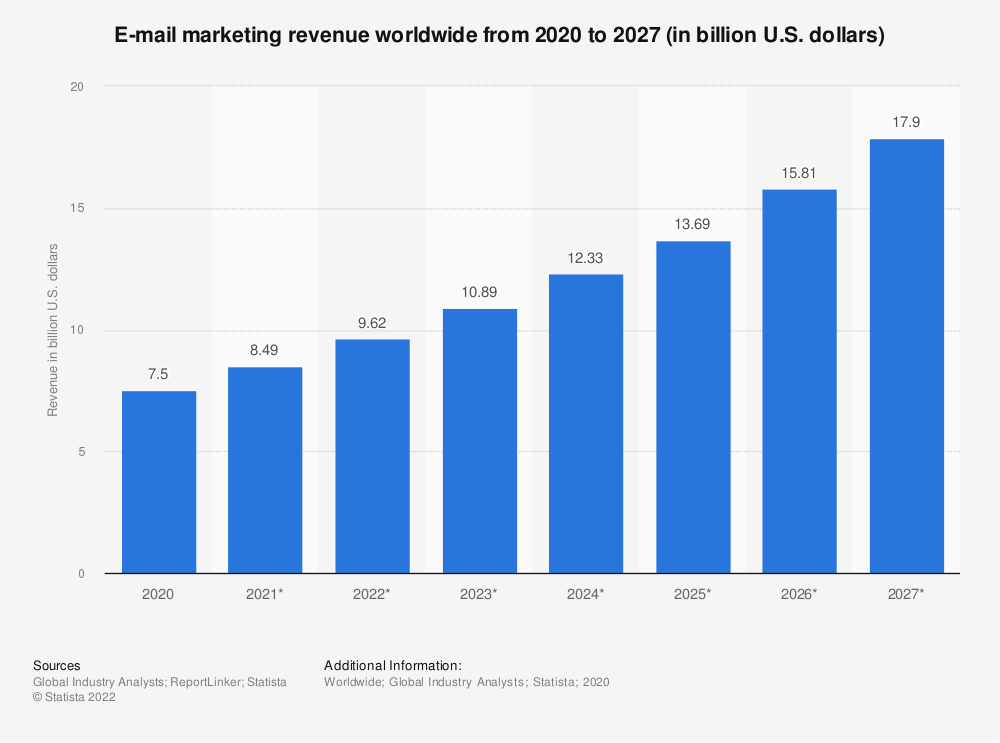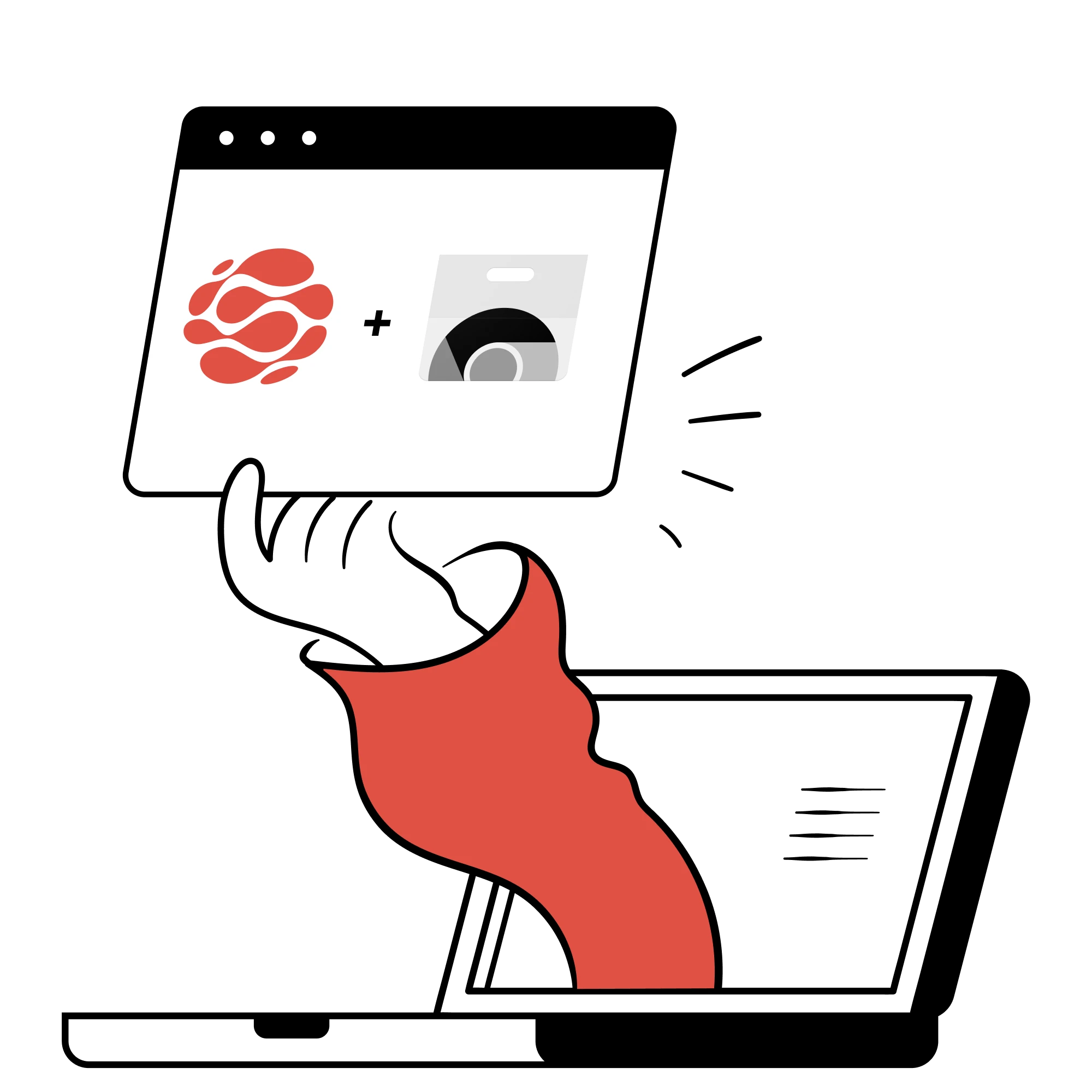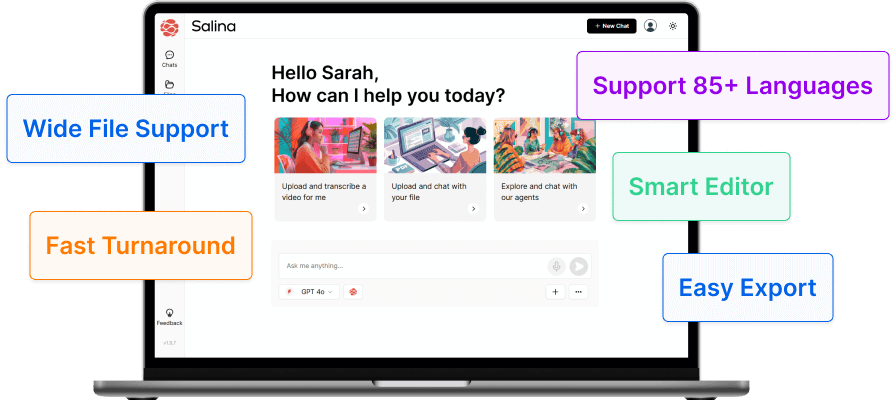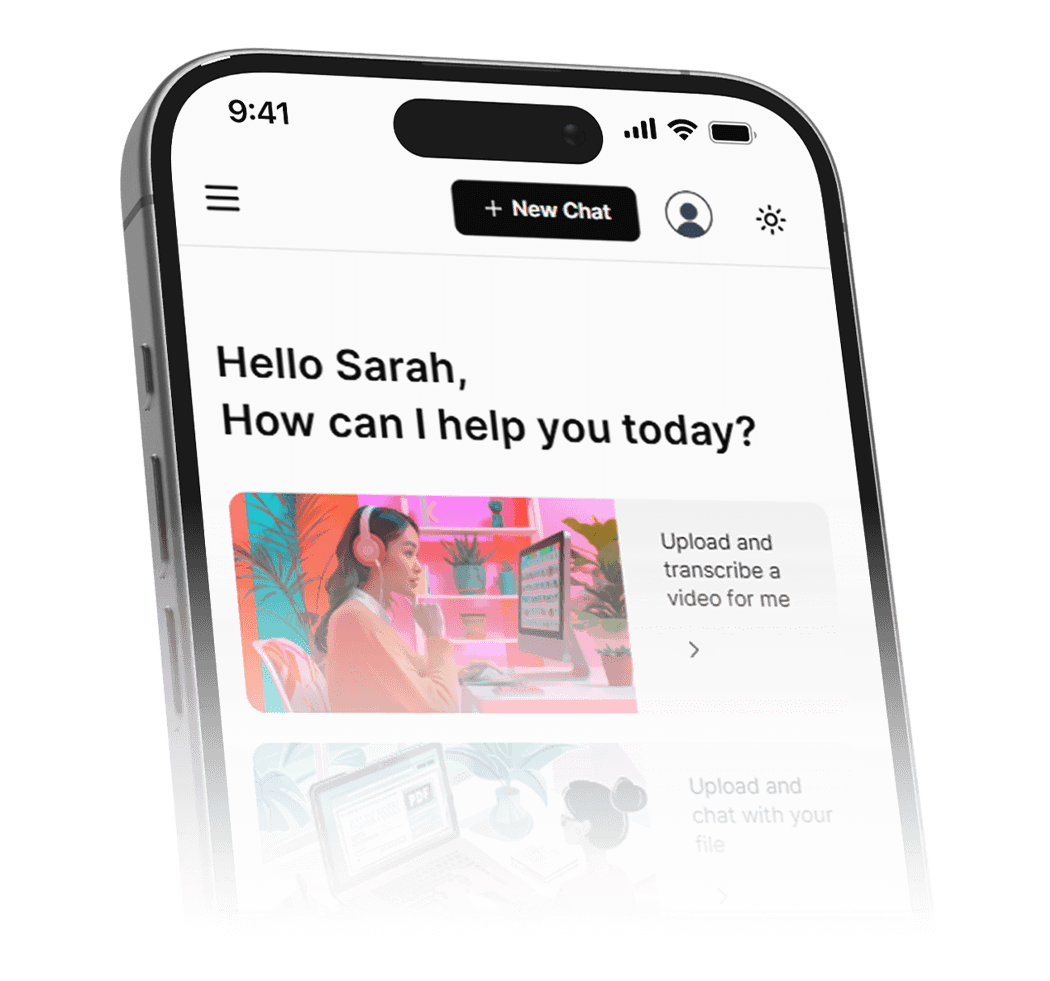Delve into how AI is transforming marketing, paving the way for a transition from routine tasks to strategies you can automate. Learn how you can boost productivity in content marketing with the help of technology in our comprehensive guide.
Sticky notes are a marketer’s best friend, right? They fuel brainstorming sessions and spark brilliant campaign ideas. However, have you experienced the chaos of a desk covered in a colorful mosaic of 3M sticky notes, fading markers, and a whirlwind of scattered thoughts, all under the weight of an approaching deadline?
After a productive brainstorming session last week, my desk transformed into a hub of creative chaos. Navigating through the sea of notes, each containing a valuable idea or vital detail, seemed like an overwhelming challenge. I am certain that this experience is not unique and that you can empathize.
There is hope for all of us! By tackling this common organizational obstacle, you can reclaim control of your workspace and unleash substantial productivity improvements. Enter AI, providing fresh opportunities to enhance work efficiency, introduce automation, and streamline your marketing processes.
AI removes the necessity of sorting through countless sticky notes to execute a successful campaign.
How? Let’s explore together!
Why AI is Vital in Content Marketing
Content Marketing is increasingly becoming more data-driven and dynamic than ever before. AI holds the potential to enable marketers to navigate and respond to this evolving reality. By using AI advantageously, marketers can automate mundane tasks, process data at scale, and even forecast consumer behavior to create great content.
Namely, Generative AI and its transformative technology is quickly reshaping content marketing, with numerous marketers already adopting or planning to incorporate it. Together we’ll walk through how AI as a whole is boosting efficiency and strategic alignment in the industry, but before this here are some statistics on generative AI in this field.
- 76% of marketers use generative AI for copywriting and content creation, making content production more efficient.
- 71% find that generative AI sparks creative ideas, opening up new avenues for innovative marketing strategies.
- 63% use generative AI for market data analysis, improving decision-making with valuable insights.
- 62% employ generative AI for creating image assets, simplifying the creative process.
- Generative AI is projected to save marketers five hours per week, providing an extra month annually for strategic projects.
Many think that AI in content creation is something relatively new, but it’s actually been used for years. Ogilvy Italia ran a campaign years back called Nutella Unica, where they employed AI to alter their packaging with numerous patterns, resulting in 7 million distinct and exclusive labels.
You can check out the campaign and results here:
The reality is AI’s potential is vast, but many marketers are unsure of where to begin. This guide simplifies AI tools and outlines how to easily incorporate them into your content marketing process.
AI Tools to Boost Productivity in Content Marketing
The introduction of AI can impact nearly every aspect of your content marketing operation. Here are some core areas where AI can be particularly potent:
Content Creation and Curation
AI in content creation and curation has cut down the time and resources needed to make engaging content. These tools analyze data, grasp audience preferences, and stay updated on trends.
Result: top-notch content that connects with your audience. AI tools simplify content creation and curation, boosting efficiency in content marketing.
How you can use AI in Content Creation and Curation:
- Automated content generation
- Trend analysis
- Audience engagement insights
- Content quality enhancement
AI Tools and Use Cases:
Copy.ai
A powerful AI tool that automates the creation of written content, from blog posts to social media updates.
Use Case: Marketers can use Copy.ai to quickly generate creative ideas and draft content that aligns with their brand messaging and audience interests, saving significant time in the content creation process.
Curata
Leverages AI to curate content from across the web, ensuring that your audience always has access to the latest and most relevant articles and resources.
Use Case: Ideal for content marketers who want to position their brand as a thought leader by consistently sharing valuable and insightful content without the need for extensive manual research.
Personalization and Customer Insights
Personalization is key to engaging and retaining customers. AI tools in this domain analyze customer data to deliver more personal experiences, predict future behaviors, and segment audiences with precision.
The approach of tailor-fitting strengthens customer relationships, drives loyalty, and increases conversion rates by delivering content and offers that cater to individual preferences and needs.
This is seen in action with Spotify’s announcement of their AI DJ feature that personalizes music curation tailored to individual preferences, as seen in the video below.
Introducing DJ – an entirely new way to play your Spotify, powered by AI. Now rolling out to Premium users in the US and Canada. #SpotifyDJ pic.twitter.com/mVjHnLMcYX
— Spotify (@Spotify) February 22, 2023
They too are implementing different AI capabilities of translating podcasts to different languages, music and podcast recommendations fit to your own personal tastes, and search functionalities that are aided by AI.
How you can use AI to Personalize and Gather Customer Insight:
- Behavior prediction
- Customer segmentation
- Tailored marketing messages
- Personalized customer journeys
AI Tools and Use Cases:
Salesforce Einstein
An AI-powered CRM tool that provides deep insights into customer behavior, enabling personalized marketing and sales strategies.
Use Case: Marketers can use Salesforce Einstein to tailor their campaigns and customer interactions based on detailed behavior predictions, enhancing customer engagement and conversion rates.
Oracle’s Siebel
Uses AI to deliver advanced customer segmentation and personalization, helping marketers craft targeted messages that resonate with each segment.
Use Case: Suitable for enterprises that require sophisticated data analysis to create personalized marketing messages and offers across multiple channels.
SEO and SEM
AI tools have transformed SEO and SEM, making it easier to navigate the complexities of search engine algorithms and user behavior. These tools provide actionable insights, automate keyword research, optimize content, and track performance, simplifying the process of improving your website’s search engine rankings and visibility.
With the ability to process and analyze vast amounts of data, AI-driven SEO and SEM tools offer a competitive edge, ensuring your content reaches its intended audience.
How you can use AI in SEO and SEM:
- Keyword optimization
- Search trend forecasting
- Competitor analysis
- Backlink strategy
AI Tools and Use Cases:
SEMrush
Provides a comprehensive suite of SEO tools powered by AI, helping marketers with keyword research, site audits, and competitive analysis.
Use Case: SEO professionals and marketers can leverage SEMrush to uncover valuable keywords, monitor their site’s health, and stay ahead of competitors in search rankings.
Moz
An AI-enhanced platform offering SEO insights and tools for backlink analysis and keyword optimization, designed to improve your site’s visibility.
Use Case: Businesses looking to enhance their SEO strategy can use Moz to find and target the right keywords, analyze backlinks, and optimize their site structure for better search engine rankings.
In today’s content scale wherein AI plays a highly involved role in navigating how we create, repetitiveness and mimicry of SEO-driven content are at an all-time high. With this in mind, we take after the advice of Francesco Federico the CMO of S&P Global Ratings when he said that
“In order to achieve excellence, content marketers will have to shift their mindset and become content engineers. Their skillset will have to include prompt crafting, so once they are done producing the master asset, they can comfortably request all the necessary variations to the AI tool of their choosing.”
Francesco Federico the CMO of S&P Global Ratings
This just means that we’ve transitioned from creating from scratch and instead marketers are now tasked with engineering their content to fit their requirements. Crafting content that is unique, of value, and still satisfies search intent through SEO.
To read more about conversational search an aspect of AI that affects SEO and SEM here is Francesco’s whole post:
Analytics and Reporting
AI-powered analytics and reporting tools are crucial for interpreting large volumes of data from digital marketing efforts. They offer in-depth insights on campaign performance, customer actions, and market trends, empowering marketers to make swift, informed choices.
With the ability to pinpoint effective strategies and areas needing improvement, these tools enable real-time marketing strategy optimization for optimal results.
How you can use AI for Analytics and Reporting:
- Campaign performance tracking
- User behavior analysis
- Real-time insights
- Predictive analytics
AI Tools and Use Cases:
Google Analytics
Uses AI to offer advanced analysis of web traffic and user engagement, helping marketers optimize their websites and campaigns.
Use Case: An essential tool for digital marketers seeking to understand how users interact with their websites and how to improve their online marketing efforts.
IBM Watson
Offers sophisticated AI-powered analytics that can decipher complex data, providing actionable insights and predictive analytics for future marketing strategies.
Use Case: Best for businesses that depend on comprehensive data analysis to guide their marketing decisions and strategy adjustments.
Social Media Management
Managing social media effectively requires not just creative content but also strategic timing and engagement. AI tools in social media management automate content scheduling, analyze engagement data, and even interact with users, helping brands maintain a dynamic and responsive online presence.
The automation implemented here ensures that your social media strategy is not only efficient but also data-driven, optimizing your reach and engagement across platforms.
How you can use AI in Social Media Management:
- Content scheduling optimization
- Engagement rate improvement
- Audience growth analysis
- Sentiment analysis
AI Tools and Use Cases:
SocialBee
Automates content scheduling and social media account management, using AI to ensure your content reaches your audience when they are most active.
Use Case: Ideal for social media managers looking to streamline their content strategy and maximize engagement without constant manual intervention.
Sprout Social
Provides AI-driven insights into social media performance, audience engagement, and content optimization, making it easier to connect with your audience.
Use Case: Suitable for brands aiming to deepen engagement with their social media followers and gain detailed insights into their campaign performance.
Email Marketing
This year, revenue from email marketing is projected to surpass 12 billion dollars. As illustrated in the Statistica graph below, there is a consistent upward trend anticipated for the coming years, affirming its enduring effectiveness as a digital channel.

With AI in the mix email marketing’s potential is amplified even further in enabling personalization, optimizing send times, and tailoring content to preferences, AI tools help increase the open and conversion rates of campaigns. These technologies ensure each email sent is relevant, significantly enhancing the effectiveness of strategies.
How you can use AI in Email Marketing:
- Audience segmentation
- Send time optimization
- Content personalization
- Email campaign analysis
AI Tools and Use Cases:
Mailchimp
An email platform that uses AI to segment audiences and make content more personal, ensuring relevance and engagement.
Use Case: Marketers can use Mailchimp to craft personalized email campaigns that resonate with each segment of their audience, improving rates and engagement.
HubSpot
Offers AI-powered email tools that customize messaging based on behavior and preferences, streamlining the marketing process.
Use Case: Perfect for businesses aiming to automate email marketing, providing content to boost interaction and conversions.
Leading with AI Tips and Strategies
To maximize the potential of AI, here are some tips and strategies to keep in mind:
- Ensure Data Quality: AI is only as good as the data it uses. Invest in data quality to improve the accuracy and value of AI-driven insights.
- Be Ethical: AI in marketing presents significant ethical and privacy concerns. Ensure your use of AI aligns with ethical standards and legal considerations.
- Maintain Human Oversight: While AI tools perform impressively, they are not infallible. Human oversight is crucial to ensure AI-driven decisions align with your brand’s values and strategy.
- Consistently Innovate: AI is an evolving field. Stay informed about the latest tools and best practices to continue pushing the boundaries of what’s possible in marketing.
Key Takeaways
- AI tools enhance digital marketing by enabling personalization, boosting engagement, and optimizing campaign performance across channels like social media, email marketing, and web analytics.
- Real-time data analysis and predictive analytics from AI tools provide deep insights into customer behavior and campaign efficiency, enabling quick strategy adjustments.
- AI integration in social media management and email marketing automates content distribution and personalizes interactions, significantly increasing engagement and conversion rates.
- Prioritizing data quality and ethical standards in AI use is vital for leveraging its full marketing potential while addressing privacy concerns.
- Human oversight is crucial in AI implementations to ensure technologies align with brand values and marketing objectives.
What’s Next
AI is changing the game for marketing directors, offering the potential to streamline operations, personalize interactions, and gain deeper insights. By seizing the opportunities presented by AI, you can lead your team to new heights of productivity and efficacy.
Looking ahead, the role of AI in marketing will only grow. The question isn’t whether you should incorporate AI into your marketing strategy, but how quickly you can do so effectively. The future is AI, and the time to leverage its power is NOW.




